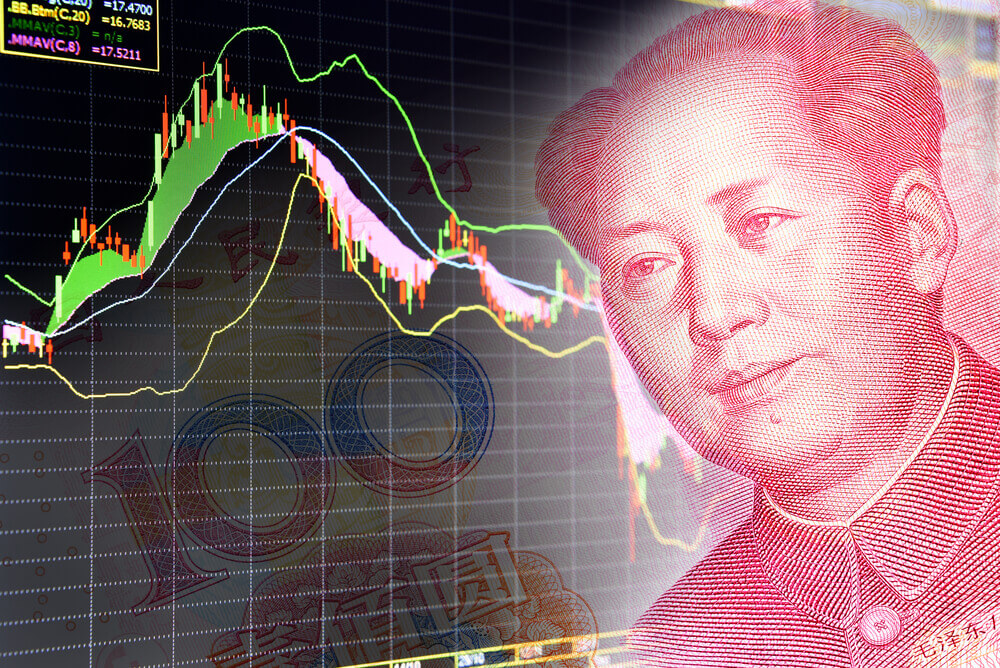China’s Yuan Weakens, Central Bank Vows to Curb Speculation
In the world of finance, few currencies carry the weight and influence that the Chinese Yuan does. As the second-largest economy in the world, China’s currency plays a pivotal role in global markets.
Today, the Yuan currency is once again making headlines as it weakens, leading the People’s Bank of China to vow to curb speculation. We explore the recent developments surrounding the Yuan and its potential impact on international trade and investment.
As China expands its currency swap agreements and develops a digital currency, the Yuan’s influence in global markets will continue. Investors and traders need to be mindful of these shifts and adapt their strategies to navigate this changing landscape successfully. The rise of the Yuan offers both opportunities and challenges and staying informed about China’s currency internationalization efforts is crucial for global market participants.
Chinese Yuan Takes a Dip, Raising Concerns
Over the past few weeks, the Chinese Yuan exchange rate has experienced a noticeable decline against major currencies like the GBP, causing investors and analysts to sit up and take notice. The weakening of the Yuan is a result of several factors, including concerns over China’s economic growth prospects and the ongoing trade tensions between China and other major economies.
This sudden dip in the Chinese Yuan has raised concerns about its stability and potential consequences for global markets. As a result, the People’s Bank of China has pledged to take measures to curb speculation and stabilize the currency. This move aims to restore investor confidence and maintain the overall health of the Chinese economy.
Buying Chinese Yuan: A Golden Opportunity or Cause for Caution?
For those considering investments or international trade involving China, the current weakness of the Chinese Yuan may present an intriguing opportunity. A lower exchange rate means that foreign buyers can acquire more Chinese goods and services for the same amount of their own currency. This can potentially boost exports and stimulate economic growth.
However, it’s important to approach buying the Chinese Yuan with caution. Currency exchange rates are influenced by numerous factors, including geopolitical tensions, economic policies, and market sentiments. Predicting the future movements of any currency, including the Yuan, is a complex task that requires careful analysis and risk assessment.
Global Ramifications: Unveiling the Domino Effect
International Trade and Investment: China, as the world’s second-largest economy, plays a pivotal role in international trade and investment. Any significant disruption in the Chinese stock market reverberates across global supply chains and impacts multinational corporations. A prolonged downturn could weaken demand for goods and services, leading to reduced trade volumes and affecting economies worldwide. Market Sentiment and Investor Confidence: The Chinese stock market decline sends shockwaves through global financial markets as investors and traders react to the uncertainty. Market sentiment and investor confidence are fragile, and a significant downturn can trigger a broader selloff across various asset classes.A Cause for Concern
In recent days, the Shanghai Composite Index, the benchmark index for Chinese stocks, suffered a substantial decline, plummeting over 5% in a single day.
This sharp drop has set alarm bells ringing among market participants, raising concerns about the stability of the Chinese economy and the potential ripple effects on the global stage.
China’s Drive for Currency Internationalization
China’s efforts to promote the Yuan’s internationalization are multi-faceted and strategic. Here are two key initiatives that underline China’s drive:
Expanding Currency Swap Agreements: China has been actively establishing bilateral currency swap agreements with various countries, enabling direct transactions in Yuan.
These agreements reduce the reliance on the US dollar as an intermediary currency and promote the use of the Yuan in cross-border transactions. By expanding its network of currency swap partners, China strengthens the Yuan’s role in global trade and investments.
Development of Digital Currency: China is also making strides in the development of a central bank digital currency (CBDC), commonly referred to as the digital Yuan or e-Yuan. The digital Yuan offers increased convenience, efficiency, and traceability in transactions, both domestically and internationally. Adopting a digital currency further enhances China’s efforts to establish the Yuan as a leading global currency and challenges the dominance of traditional fiat currencies.
The post China’s Yuan Weakens, Central Bank Vows to Curb Speculation appeared first on FinanceBrokerage.























